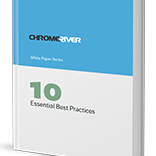 When it comes to travel expenses, the big consideration is not necessarily about spending more or less – it’s about spending differently. But changing spending habits to ensure companies are efficiently meeting their goals may be easier said than done, according to a CFO Research and SAP study. The study collected info from 173 finance executives at midsize and large firms across Europe and North America.
When it comes to travel expenses, the big consideration is not necessarily about spending more or less – it’s about spending differently. But changing spending habits to ensure companies are efficiently meeting their goals may be easier said than done, according to a CFO Research and SAP study. The study collected info from 173 finance executives at midsize and large firms across Europe and North America.
Tighter Control over Spending
One major goal across the board was tighter control over business travel expenses, something executives aimed to achieve in several ways. To improve travel expense management over the next 24 months, respondents were expecting to:
- 42 percent: Optimize level of control over travel expenses
- 30 percent: Increase value of travel-related expenditures
- 22 percent: Reduce administrative burden of expense management
While intentions were good, the reality was a shade less positive. Only a sliver of companies said employee compliance was top-notch, with the majority noting improvements could definitely be made.
- 12 percent: Excellent employee compliance
- 57 percent: Room for improvement with employee compliance
- 28 percent: Substantial room for improvement with employee compliance
Tightening the reigns isn’t necessarily the answer, as one executive lamented. He said his company had significantly increased the travel restrictions for employees – which led to a significant increase in difficulty policing them due to the sheer number of restrictions in place.
Preferred-Vendor Relationships
Preferred-vendor relationships were already helping many companies gain an edge with travel-related expenses, with 75 percent making extensive use of them. Respondents were asked to select the top two benefits, which included:
- 68 percent: Better prices
- 39 percent: Enhanced visibility into and control over employee travel behavior
- 25 percent: Improved customer service
- 11 percent: Better selection of products
- 7 percent: Faster delivery
Although the strategy comes with myriad potential benefits, it is one that also presents a number of challenges. A full 77 percent of respondents said making better use of vendor-preferred relationships would result in significant financial benefits for their companies.
Execs were asked to name the two greatest barriers standing in the way of making optimum use of preferred-vendor relationships for travel-related purchases. They cited:
- 30 percent: Producing enough purchasing volume with given vendor to gain negotiating leverage
- 30 percent: Enforcing employee compliance with policies
- 20 percent: Producing enough overall purchasing volume
- 16 percent: Establishing relationships with vendors employees are comfortable using
- 16 percent: Cost of documenting spending volume and negotiations outweighs benefits
- 15 percent: Lack of timely access to comprehensive travel-related spending information
The report suggested that benefits were most likely to be felt by combining two key strategies. The first was listening to employees to ensure they feel they’re being heard. The second was to provide the tools that explain the reasoning behind the policies while making it easier for them to comply.
Make it easier for your employees to comply with expense management software from Chrome River.
Subscribe
Latest Posts
Posts by Category
I just love the Chrome River application. I could probably sell it! Finance Administrative Coordinator Law Firm, 800 Employees
Can’t we just move year-end, so that we can roll out Chrome River sooner!? Financial Systems Director Law Firm, 300 Employees


Comments